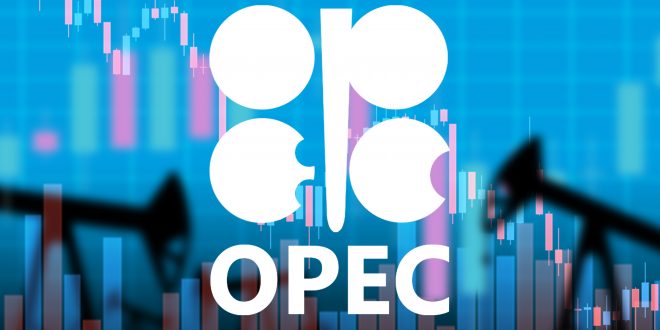The U.S., Europe and Japan have called on oil-producing nations to do more to tackle record-high prices amid the war in Ukraine and ongoing supply shortages.
On Monday, OPEC+ group was reportedly expected to stick to the May oil output plan increase plan at the March 31 meeting as several international calls are increasingly urging to keep the group out of politics.
“The Saudis are careful,” sources told Reuters. “They don’t want to hike oil output above plan in order not to show they are against Russia”.
Oil prices continue to push lower after this headline. West Texas Intermediate (WTI) crude was trading at $105.00, losing 6.8% on a daily basis.
The United Arab Emirates endorsed the continued role of Russia in OPEC+, even as governments condemn Moscow’s invasion of Ukraine and buyers shun its cargoes.
“Russia is an important member” of the Organization of Petroleum Exporting Countries and its allies and is likely to remain in the group, United Arab Emirates Energy Minister Suhail Al-Mazrouei said Monday at a conference in Dubai. “This is an alliance to stay; this is an alliance we need”, the minister added.
Al Mazrouei, a former president of the oil alliance, said no other country could match Russia’s energy output and argued politics should not distract from the group’s efforts to manage energy markets. “Always, Russia is going to be part of that group and we need to respect them,” he told Hadley Gamble at the Atlantic Council’s sixth annual Global Energy Forum in Dubai.
OPEC+ will likely stick to its plans for a modest increase in its oil output in May, several sources close to the group said, despite a surge in prices due to the Ukraine crisis and calls from consumers for more supply.
“Who can replace Russia today? I cannot think of a country that can in a year, two, three, four or even 10 years replace 10 million barrels. It’s not realistic,” he said.
Having raised its target by 400,000 barrels per day each month since August 2021, OPEC+ plans agreed last year call for a May increase of 432,000 bpd based on raised baselines for Saudi Arabia, Russia, Iraq, the UAE and Kuwait.
Several consuming nations including the United States have urged producers to raise their output by more as crude prices have surged, hitting their highest since 2008 this month at over $139 a barrel.
But major OPEC members such as Saudi Arabia and the United Arab Emirates have held back on increasing their targets, while OPEC+, a group that includes Russia, has steered clear of the topic of Ukraine.
Sources have said Riyadh, as a quid pro quo for higher oil supply, wants more Western support in its war in Yemen and security guarantees over an Iranian nuclear deal.
Six OPEC+ sources told Reuters the group would most likely stick to the plan for May, with one of them saying Saudi Arabia’s reluctance to agree to a bigger hike also reflected its support for Moscow.
“The Saudis are careful,” the source said. “They don’t want to hike oil output above plan in order not to show they are against Russia.”
A Russian oil source said Russia did not expect OPEC+ to raise its planned increase for May and “hopes for OPEC+ partners’ support.”
While OPEC+ has increased its output target each month, production has not met those targets as some members struggle with capacity constraints, and this has been a factor underpinning prices.
OPEC+, led by Saudi Arabia and Russia, has the capacity to increase oil output and bring down crude prices, which have jumped to over $100 a barrel. OPEC and non-OPEC ministers are slated to meet on Thursday via video conference to determine the next phase of production policy. It comes amid renewed pressure for the influential alliance to boost oil supplies after G7 energy ministers said OPEC “has a key role to play” in easing market tensions.
 Noor Trends News, Technical Analysis, Educational Tools and Recommendations
Noor Trends News, Technical Analysis, Educational Tools and Recommendations





